#British theatre
Text

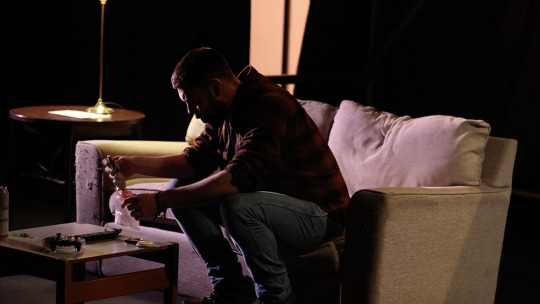
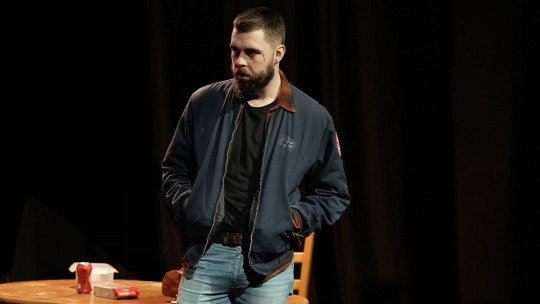

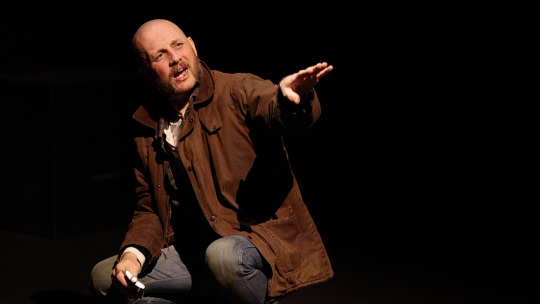
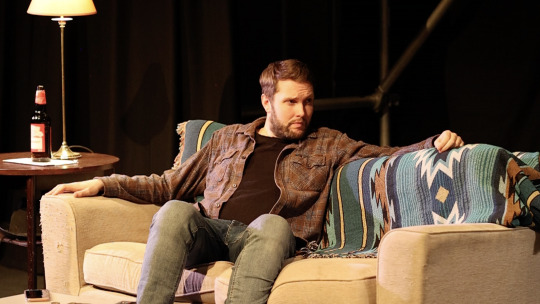
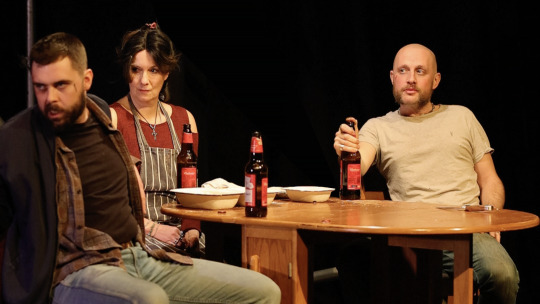
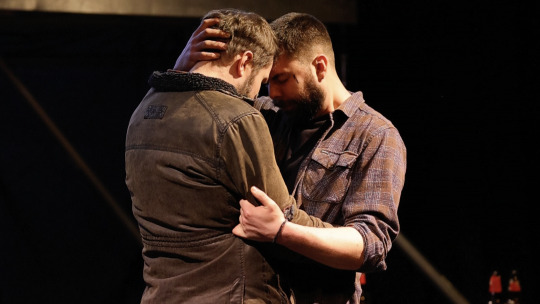
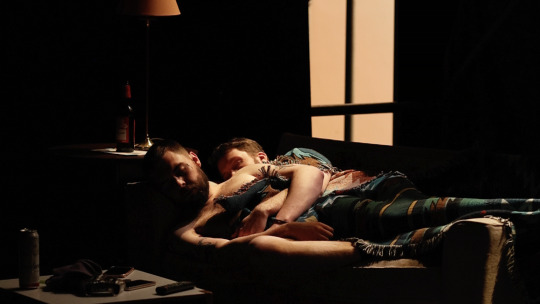
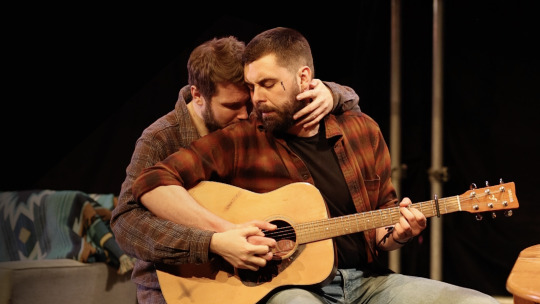
www.twocomehomeplay.com
@twocomehomeplay
Joe Eason, Ben Maytham, James Burton, & Nicola Goodchild in 'Two Come Home', Lakeside Theatre, 2024
120 notes
·
View notes
Text
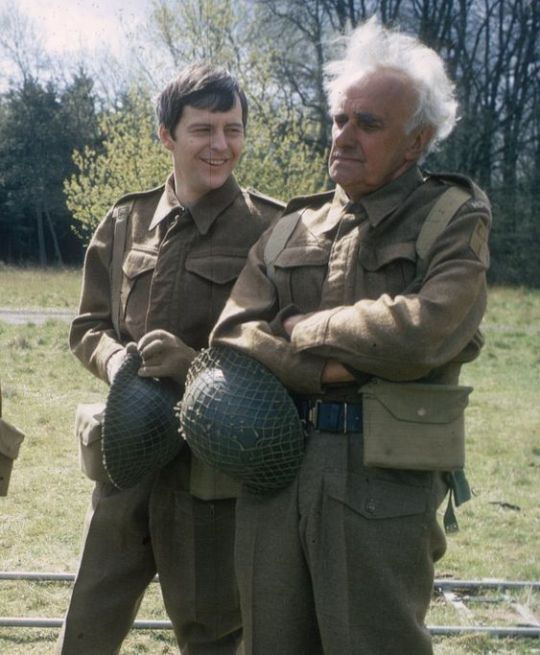
A little more on Ian Lavender, who passed away February 2nd, 2024, aged 77.
Just one of the abiding friendships between the cast of Dad’s Army was between Ian Lavender himself (born 1946) and John Laurie (born 1897).
Private Pike was Ian Lavender’s first ongoing television role, while John Laurie, a Great War veteran, had appeared in British films dating back to 1929, and was a leading Shakespearean actor on stage.
John Laurie was godfather to Ian Lavender’s children, and they were both dab hands at The Times crossword. John Laurie passed away in 1980, at the age of 83.

Ian Lavender always expressed his gratitude for having worked on Dad's Army, but admitted that typecasting had held back his career, particularly in movies, although he did appear in a handful of classic mid-seventies British films, including Carry on Behind, Not Now, Comrade, and Confessions of a Pop Performer.
He reprised his Dad's Army character, Frank Pike, in a BBC radio sequel, It Sticks Out Half a Mile, and he starred alongside Mollie Sugden in one of David Croft's rare catastrophes, the sci-fi sitcom Come Back Mrs Noah. He featured with Jimmy Edwards in The Glums, and had a series of memorable cameos on British television, including in Yes Minister, Goodnight Sweetheart, and Keeping Up Appearances.
According to his obituary in The Guardian:
"...In addition to various live Dad’s Army productions, his stage work included the Peter Hall Company’s The Merchant of Venice, with Dustin Hoffman as Shylock in 1989, touring as the Narrator in The Rocky Horror Show in 2005, Monsignor Howard in the London Palladium production of the musical Sister Act in 2009, The Shawshank Redemption at the Edinburgh fringe in 2013, and his own one-man show of reminiscences, Don’t Tell Him, Pike..."
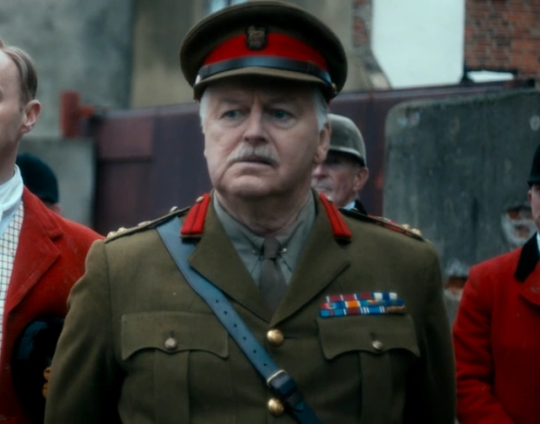
He appeared in 245 episodes of Eastenders, and was one of only two of the original Dad's Army cast members, along with Frank Williams (the Vicar), to appear in the 2016 feature film.
Here Ian Lavender recalls an unintentionally comical appearance on New Zealand radio some years after the final episode of Dad's Army.
#social history#ian lavender#dads army#british culture#british television#british theatre#british actors#classic television#yes minister#keeping up appearances#david croft#bbc radio#eastenders
24 notes
·
View notes
Text



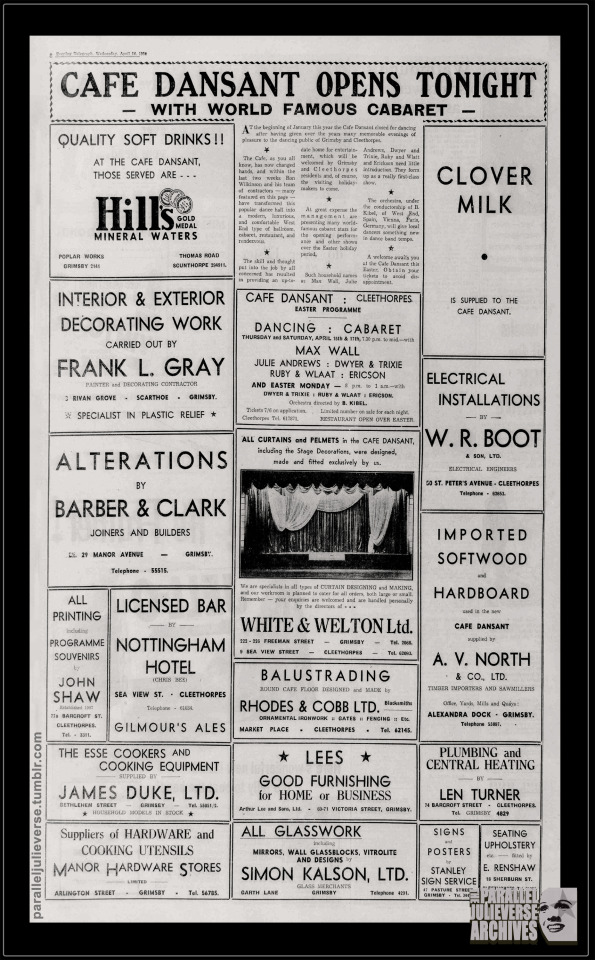
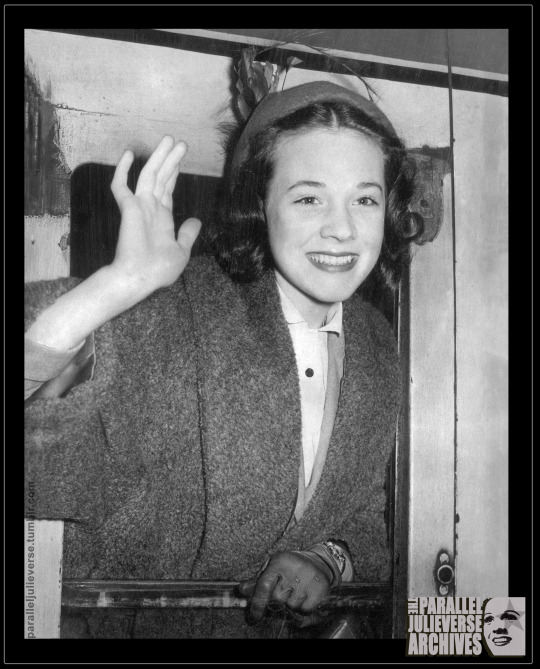
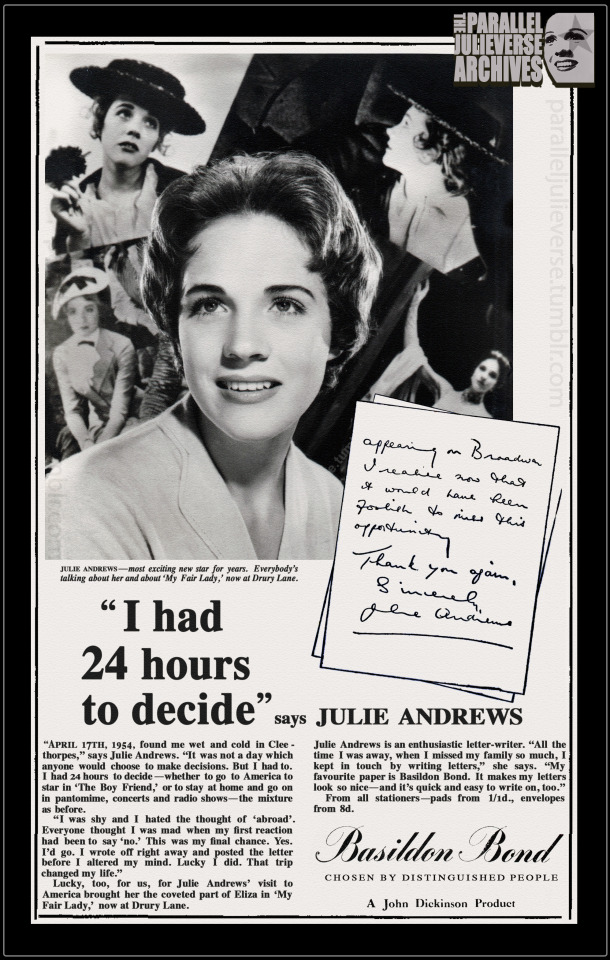
Come taste the wine... : 70th anniversary of Julie Andrews's 'cabaret debut' at the Café Dansant, Cleethorpes,
3 performances
Easter, 14-17 April, 1954
This week, seventy years ago, Julie Andrews made her official 'cabaret debut' at the Café Dansant in Cleethorpes. While not a major milestone in the traditional sense -- and one that seldom features in standard Andrews biographies -- the Cleethorpes appearance was nevertheless a significant event in the star's early career.
For a start, it was Julie's first appearance in cabaret -- the theatrical genre that is, not the Broadway musical which is a whole other Julieverse story. Characterised by sophisticated nightclub settings with adult audiences watching intimate performances, cabaret emerged in fin-de-siècle Paris before expanding to other European cities such as Berlin and Amsterdam (Appignanesi, 2004). Imported to Britain in the interwar years, cabaret offered a more urbane, adult alternative to the domestic traditions of English music hall and variety with their family audiences and jolly communal spirit (Nott, 2002, p. 120ff).
Julie's debut in cabaret was, thus, a significant step in her professional evolution towards a more mature image and repertoire. By 1954, Julie was 18, and well beyond the child star tag of her earlier years. Under the guidance of manager, Charles Tucker, there was a calculated strategy to reshape her stardom towards adulthood.
The maturation of Julie's image had begun in earnest the previous summer with Cap and Belles (1953), a touring revue that Tucker produced as a showcase for Julie, comedian Max Wall, and several other acts under his management. Cap and Belles afforded Julie the opportunity to shine with two big solos and a number of dance sequences. Much was made in show publicity of Julie's new "grown up" look, including the fact that she was wearing "her first off-the-shoulder evening dress" ('Her First Grown-Up Dress', 1953, p. 4).
The Cleethorpes cabaret was a further step in this process of transformative 'adulting'. Indeed, it was something of a Cap and Belles redux. Not only was Max Wall back as headline co-star, Julie even wore the same 'grown up' strapless evening gown. In keeping with a cabaret format, though, Julie was provided a longer solo set where she sang a mix of classical and contemporary pop songs including "My Heart is Singing", "Belle of the Ball", "Always", and "Long Ago and Far Away" ('Cabaret opens', 1954, p. 4).
That Julie should have chosen Cleethorpes for her cabaret debut might seem odd to contemporary readers. Today, this small town on the north Lincolnshire coast is largely regarded as a somewhat faded, out-of-the-way seaside resort. In its heyday of the mid-twentieth century, however, Cleethorpes was a vibrant tourist hub that attracted tens of thousands of holidaymakers each year (Dowling, 2005). With several large theatres and entertainment venues, Cleethorpes was also an important stop in the summertime variety circuit, drawing many of the era’s big stars and entertainment acts (Morton, 1986).
The Café Dansant was one of Cleethorpes' most iconic nighttime venues, celebrated for its elegant suppertime cabarets and salon orchestras. Opening in the 1930s, the Café was a particularly popular haunt during the war and post-war era when servicemen from nearby bases danced the night away with locals and visiting holidaymakers to the sound of touring jazz bands and crooners (Dowling, 2005, p. 129; Ruston, 2019).
By 1954, the Café was starting to show its age, and incoming new management decided to shutter the venue for several months to undertake a luxury refurbishment (‘Café Dansant closed', 1954, p. 3). A gala re-opening was set for the Easter weekend of April 1954, just in time for the start of the high season (‘Café Dansant opens', 1954, p. 8).
Opening festivities for the Café kicked off with a lavish five hour dinner cabaret on the evening of Wednesday, 14 April. Julie was “one of the world famous cabaret stars" booked for the gala event, and she received considerable promotional build-up in both local and national press (‘Café Dansant opens', 1954, p. 8). There was even a widely circulating PR photo of Julie boarding the train to Cleethorpes at London's Kings Cross station.
In the end, Max Wall was unable to appear due to illness, and Alfred Marks -- another Tucker artist and former variety co-star of Julie's (Look In, 1952) -- stepped in at short notice. Rounding out the bill were several other minor acts, including American dance duo, Bobby Dwyer and Trixie; novelty entertainers, Ruby and Charles Wlaat; and magician Ericson who doubled as cabaret emcee.
Commentators judged the evening a resounding success. The "Cafe Dansant has got away to a flying start, after probably the biggest opening night ever seen in Cleethorpes," effused one newspaper report (Sandbox, 1954, p.4). Special mention was made of Julie who “received a great reception when she sang a selection of old and new songs, accompanied at the piano by her mother” (‘'Café Dansant reopening’, 1954, p. 6).
Following her performance, Julie joined the Mayor of Cleethorpes, Mr Albert Winters, in a cake-cutting ceremony and mayoral dance. Decades later, Winters recalled how he still “savour[ed] the memory of snatching a dance with the young girl destined to be a star… [S]he seemed very slim and frail,” he reminisced, “but she was a great dancer and I thoroughly enjoyed myself” (Morton, 1986, p. 15).
Julie stayed on in Cleethorpes for two more performances on Thursday 15 and Saturday 17 April respectively, before returning to London with her mother on Easter Sunday, 18 April. The very next day she commenced formal rehearsals for Mountain Fire, Julie's first dramatic 'straight' play and another step in her professional pivot to more adult content (--also, time permitting, the subject of a possible future blogpost).
A final noteworthy aspect about the Cleethorpes appearance is that it was during this weekend that Julie made the momentous decision to go to America to star in The Boy Friend. In what has become part of theatrical lore, Julie had been offered the plum role of Polly Browne in the show's Broadway production sometime in February or March of 1954 while she was appearing in Cinderella at the London Palladium. To the American producers’ astonishment --- and manager Tucker’s horror -- Julie was initially reluctant to accept, fearful of leaving her home and family. She prevaricated for weeks. Finally, while she was in Cleethorpes, Julie was given an ultimatum and told she had to make her decision.
In her 1958 serialised memoir for Woman magazine, Julie recounts:
“Mummie and I went to Cleethorpes to do a concert. It was a miserable wet day. From our hotel I watched the dark sea pounding the shore with great grey waves. I was called to the downstairs telephone.
“Julie,” said Uncle Charles [Tucker]‘s voice from London, “they can’t wait any longer. You’ll have to make your mind up NOW.”
I burst into tears.
“I’ll go Uncle,” I sobbed, “if you’ll make it only one year’s contract instead of two. Only one year, please.” …
Against everyone’s judgment and wishes I got my way…None of us knew that if I’d signed for two [years], then I should never have been free to do Eliza in My Fair Lady. And never known all the happiness and success it has brought me” (Andrews, 1958, p. 46).
The Cleethorpes ultimatum even found its way into an advertising campaign that Julie did for Basildon Bond stationery in 1958/59, albeit with the telephone call converted into a letter for enhanced marketing purposes. Framed as a choice between going to America and the “trip [that] changed my life” or staying at home in England “and go[ing] on in pantomime, concerts, and radio shows—the mixture as before,” the advert highlighted the “sliding door” gravity of that fateful Cleethorpes weekend (Basildon Bond, 1958). What would the course of Julie's life been like had she said no to Broadway and opted to remain in the UK?
It is a speculative refrain that Julie and others have made frequently over the years. “If I’d stayed in England I would probably have got no further than pantomime leads,” she mused in a 1970 interview (Franks, 1970, p. 32). Or, more dramatically: “Had I remained in London and not appeared in the Broadway production of The Boy Friend…who knows, I might be starving in some chorus line today” (Hirschorn, 1968).
In all seriousness, it's doubtful that a British-based Julie would have faded into professional oblivion. As biographer John Cottrell quips: "that golden voice would always have kept her out of the chorus” (Cottrell, 1968, p. 71). Nevertheless, Julie's professional options in Britain during that era would have been greatly diminished. And she certainly wouldn't have achieved the level of international superstardom enabled by Broadway and Hollywood. Who knows, in a parallel 'sliding door' universe, our Julie might have gone on playing cabarets and end-of-pier shows in Cleethorpes...
Sources
Andrews, J. (1958). 'So much to sing about, part 3.' Woman. 17 May, 15-18, 45-48.
Appignanesi, L. (2004). The cabaret. Revised edn. Yale University Press.
Basildon Bond. (1958). 'I had 24 hours to decide, says Julie Andrews'. [Advertisement]. Daily Mirror. 6 October, p. 4.
'Cabaret opens Café Dansant." (1954). Grimsby Daily Telegraph. 15 April, p. 4.
‘Café Dansant closed.' (1954). Grimsby Evening Telegraph. 28 January, p. 3.
‘Café Dansant opens tonight – with world-famous cabaret’. (1954). Grimsby Evening Telegraph. 14 April, p. 8.
‘Café Dansant reopening a gay affair.’ (1954). Grimsby Evening Telegraph. 15 April, p. 6.
Cottrell, J. (1968). Julie Andrews: The story of a star. Arthur Barker Ltd.
Dowling, A. (2005). Cleethorpes: The creation of a seaside resort. Phillimore.
'Echoes of the past, the old Café Dansant'. (2009). Cleethorpes Chronicle. December 3, p. 13.
Frank, E. (1954). Daily News. 15 April, p.6.
Franks, G. (1970). ‘Whatever’s happened to Mary Poppins?’ Leicester Mercury. 4 December, p. 32.
'Her first grown-up dress.' (1953). Sussex Daily News. 28 July, p. 4.
Hirschorn, C. (1968). 'America made me, says Julie Andrews.' Sunday Express. 8 September, p. 23.
Morton, J. (1986). ‘Where the stars began to shine’. Grimsby Evening Telegraph. 22 September, p. 15.
Nott, J.J. (2002). Music for the people: Popular music and dance in interwar Britain. Oxford University Press.
Ruston, A. (2019). 'Taking a step back in time to the Cleethorpes gem Cafe Dansant where The Kinks once played'. Grimsby Live. 12 October.
Sandboy. (1954). 'Cleethorpes notebook: Flying start.' Grimsby Evening Telegraph. 19 April, p. 4.
12 notes
·
View notes
Photo


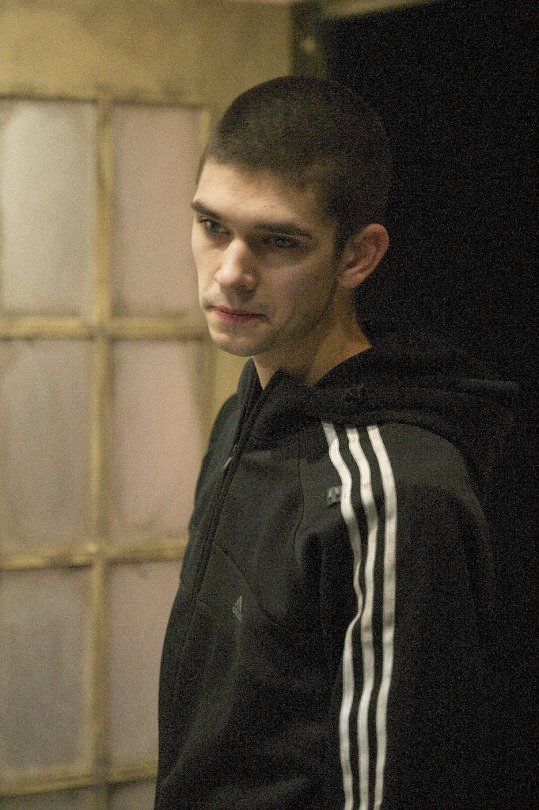
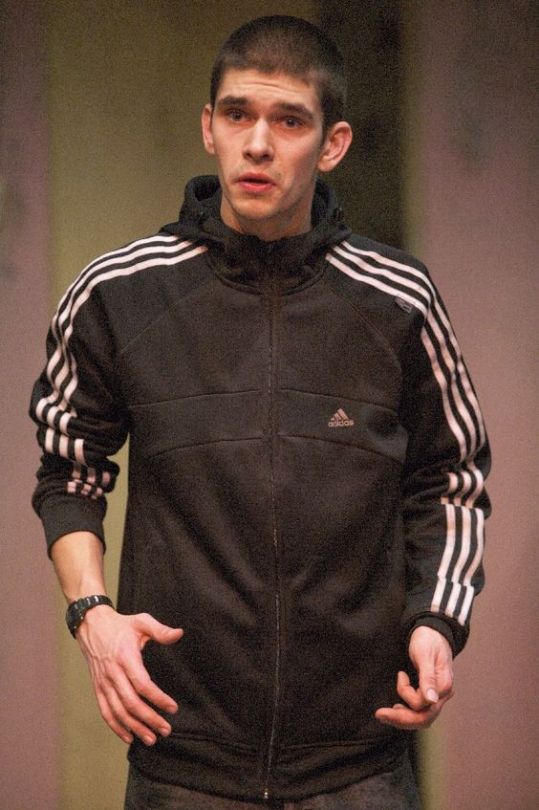
BEN WHISHAW as Elliot in Philip Ridley’s Mercury Fur at the Menier Chocolate Factory, London, 2005.
44 notes
·
View notes
Text
Sir Derek Jacobi received the Lifetime Achievement award at the Olivier Awards 2023. I never get tired of watching such a moving moment. A well deserved award for a whole life devoted to the stage. Derek is more than a Legend, he is a treasure of humility. Tears come to us seing him under such a deep emotion when he made his speech of acceptance.

23 notes
·
View notes
Text
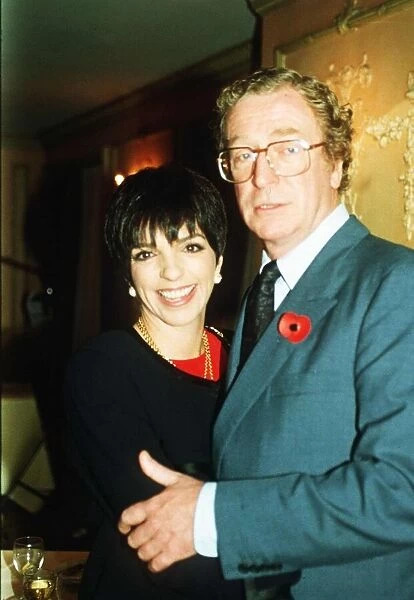
Happy 91st birthday to Michael Caine! 🍾🎂
#michael caine#british actors#movie stars#film star#old hollywood#british film#hollywood icons#film icons#liza minnelli#vintage photos#british theatre#classic hollywood
3 notes
·
View notes
Text
Ep45 Truly Hadley, Deeply… w/ Hadley Fraser! (West End!)
It's a-liiive, IT'S A-LIVE… conversation with West End hunk, Hadley Fraser, who joins the boys for a hilariously spooky Hallowe'en episode! Together, they'll discuss Dream Theater's epic 'Metropolis Part 2: Scenes from a Memory', before hopping into the lab for Evan's dissection of 'Young Frankenstein' via the Original London Cast! Plus we discuss Mel Brooks, Cultural differences, Doctor Who fans, and we find out what recent movie made Hadley cry! Despite that, it's a HAPPY HADLEYWE'EN! Err, that sounded wrong…
www.twitter.com/hadleyfraser
#Hadley Fraser#Musicals#Broadway#West End#Halloween#Young Frankenstein#Mel Brooks#Comedy#Podcast#Australian#Aussie#UK#British Theatre#Theatre#Doctor Who#Dream Theater#Metropolis Part 2#Commentary#Prog Rock#Prog Metal#Progressive Metal#Thrash#Thrash Metal#Thrash 'n Treasure#Glam#Glam Metal#Glam Rock#Evan Williams#Aaron Ware#Music Podcast
7 notes
·
View notes
Text
i want to watch nye and the motive and the cue and fucking hamlet because to (verb) or not to (verb) is the question we ask ourselves everyday, many times a day
and they say it's out in the cinema
i'm in bloody vietnam, all we have are korean movies and hollywood shits and vietnamese abominations
#nye#the motive and the cue#hamlet#british theatre#what do you mean i can't watch them in my home country#i've been dying since the existence of richard ii
2 notes
·
View notes
Text

...I ask what his take is on Shakespeare. Does he believe Rylance's theory that he was actually several different writers?
"I believe he was one man," he says without hesitation. "Because denying that would mean accepting that a man from a normal background who is perhaps not that well educated, like me, is not capable of achieving great things."
Johnny Flynn on Shakespeare's genius. (x)
#johnny flynn#folk#music#folk music#musician#shakespeare#william shakespeare#british theatre#theatre#interview
2 notes
·
View notes
Text
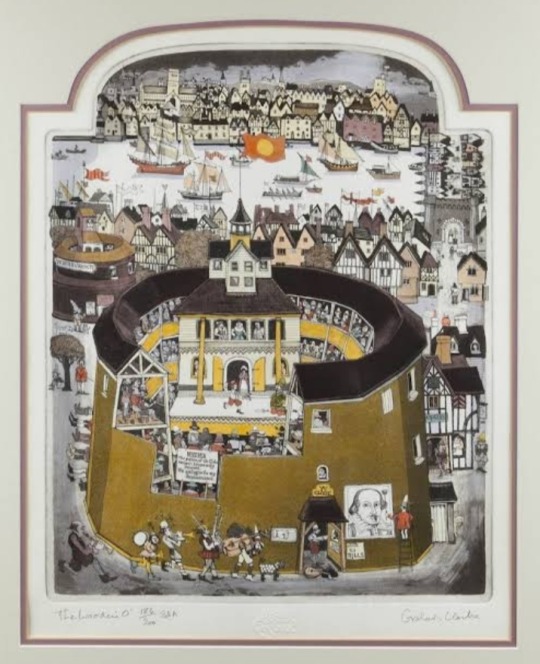
Shakespeare's Globe Theatre.
The story of Globe Theatre started with William Shakespeare's acting company, Lord Chamberlain's Men.
William Shakespeare (baptized 26 April 1564 – 23 April 1616) was a part-owner or sharer in the company, as well as an actor and resident playwright.
From its inception in 1594 AD, Lord Chamberlain's Men performed at Theatre, a playhouse located in Shoreditch.
However, by 1598, their patrons, including Earl of Southampton, had fallen out of favour with the Queen.
Theatre's landlord, Giles Alleyn, had intentions to cancel the company's lease and tear the building down.
While Alleyn did own the land, he did not own the materials with which the theatre had been built.
So, on 28 December 1598, after leasing a new site in Southwark, Cuthbert and Richard Burbage led the rest of the company of actors, sharers, and volunteers in taking the building down, timber by timber, loading it on to barges, and making their way across Thames.
Working together, the actors built the new theatre as quickly as they could.
The ground on the new site was marshy and prone to flooding, but foundations were built by digging trenches, filling them with limestone, constructing brick walls above stone, and then raising wooden beams on top of that.
A funnel caught rainwater and drained it into ditch surrounding the theatre and down into Thames.
The theatre was 30m in diameter and had 20 sides, giving it its perceived circular shape.
Structure was similar to that of their old theatre, as well as that of the neighbouring bear garden.
The rectangular stage, at 5ft high, projected halfway into the yard and circular galleries.
Pillars were painted to look like Italian marble, sky painted midnight blue, and images of gods overlooked balcony. It could hold up to 3,000 people.
By May 1599, the new theatre was ready to be opened.
Burbage named it Globe after the figure of Hercules carrying the globe on his back — for in like manner, the actors carried Globe's framework on their backs across Thames.
A flag of Hercules with globe was raised above theatre with Latin motto: 'totus mundus agit histrionem' ('all the world's a playhouse').
Shakespeare's plays that were performed there early on included:
Henry V, Julius Caesar, As You Like It, Hamlet, Measure for Measure, Othello, King Lear, Macbeth, and Antony and Cleopatra.
Here, the Lord Chamberlain's Men enjoyed much success and gained the patronage of King James I in 1603, subsequently becoming The King's Men.
During a fateful performance of Henry VIII on 29 June 1613, a cannon announcing the unexpected arrival of the king at the end of Act 1 set fire to the thatched roof, and within an hour, the Globe burned to ground.
Everyone escaped safely, save for one man whose breeches reportedly caught fire. Two different songs had been written about it by the next day.
Globe was rebuilt by February 1614. The company could then afford to decorate it extravagantly, and it had a tiled roof instead of thatched.
However, by this point, Shakespeare's influence had lessened. He was spending more and more time back in Stratford-upon-Avon.
Disaster struck again in 1642 when the Parliament ordered the closure of London theatres.
In 1644-45, Globe was destroyed and the land sold for building.
In 1970, American actor and director, Samuel Wanamaker CBE (born Wattenmacker; 14 June 1919 – 18 December 1993), set up the Shakespeare's Globe Trust to pursue his dream of reconstructing the original Globe Theatre.
For what would be almost the next 30 years, he and his team worked and fought to obtain the permissions, funds, and research necessary for a project of this scope.
Historians, scholars and architects all worked together in their efforts to build the Globe in the same way Lord Chamberlain's Men did, down to the green oak pillars and thatched roof.
Their work and dreams were fulfilled when the new Globe Theatre opened in 1997, one street away from where original stood.
Globe stands today as a living monument to Shakespeare, greatest English playwright, home to productions of his plays and many other new ones every season.
#William Shakespeare#Globe Theatre#Elizabethan Age#Jacobean Age#British theatre#English Renaissance#Early Modern Period#actor#playwright#writer#Lord Chamberlain's Men#Queen Elizabeth I#Giles Alleyn#1500s#16th century#King James I#The King's Men#1600s#17th century#Samuel Wanamaker#Shakespeare's Globe Trust#theatres#plays
6 notes
·
View notes
Text
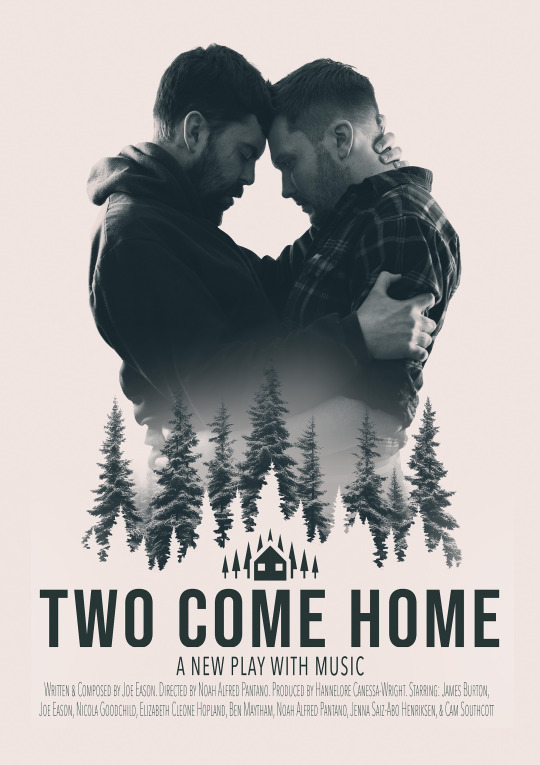
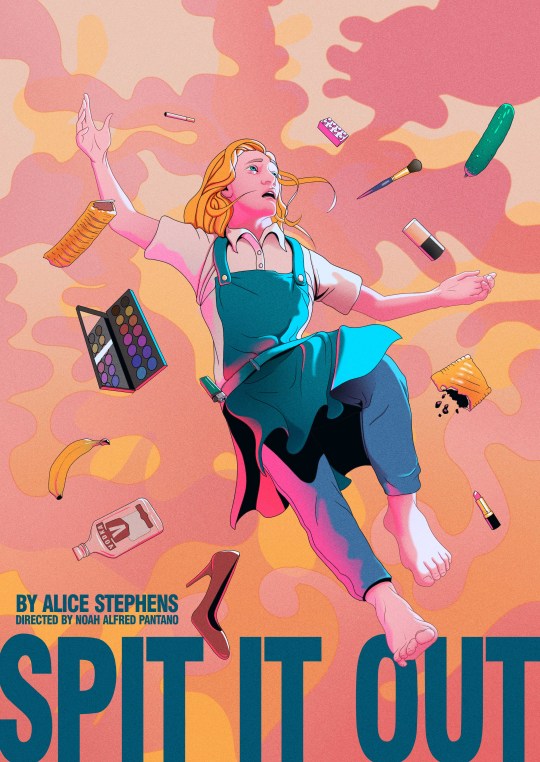
We're fundraising for two queer plays!
Donate Here
Two Come Home is my first produced play in ten years. I wrote it over a period of four years and composed the score in a whirlwind over the last few months. I wanted to explore what happens when teenage lovers reconnect in adulthood, with all the baggage and trauma of a decade apart. Most of all I wanted to write characters with the courage to break out of the relative comfort of solitude in order to reach for happiness. website instagram
Our sister show, which I've done the poster and composed the score for (and play a few lil roles) is a hilarious and moving comedy about the initial stages of coming out as trans and the hurdles that can be discovered among family, friends, dating, and work. instagram
We're taking both plays to Brighton Fringe this year and hopefully more UK Fringes if our applications our successful. Our biggest costs are accommodation, registration fees, and food. Both productions are equal profit shares. We don't have any arts funding so we're running a crowd funder with the help of Essex University. Anything you can donate is greatly appreciated. x
129 notes
·
View notes
Text
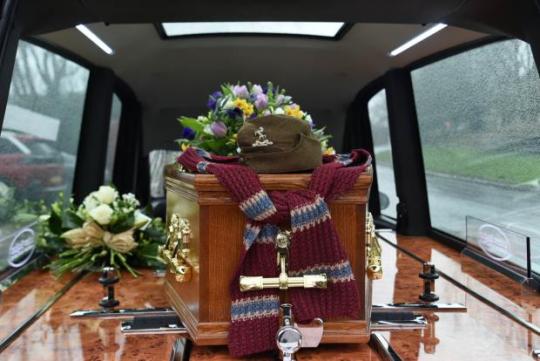
Pikey's forage cap and scarf accompanied Ian Lavender on his final journey...
11 notes
·
View notes
Photo
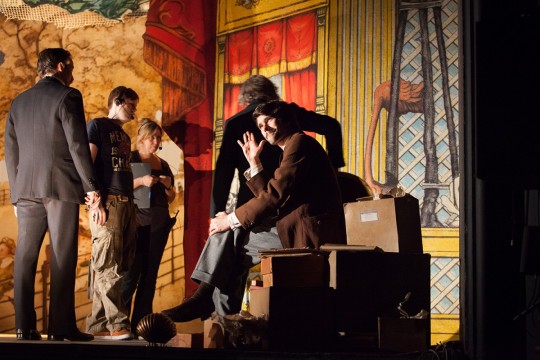
Ben Whishaw waves to the audience during the London production of John Logan’s Peter & Alice, Noël Coward Theatre, 2013.
57 notes
·
View notes
Text
In 2013, the National Theatre celebrated 50 years of unforgettable theatre, with extracts of iconic plays of the last five decades by iconic players including Derek, Judi Dench and Maggie Smith.

#derek jacobi#british theatre#national theatre#50yearsofunforgettabletheatre#judi dench#maggie smith#great british actors#shakespeare#british legends
15 notes
·
View notes
Text

Sometimes life is good ... ✨️
Today, I've won the bid for an original theatre programme of Peter Schaffer's stage plays "The Private Ear" and "The Public Eye" from 1962, signed by Kenneth Williams and Maggie Smith!
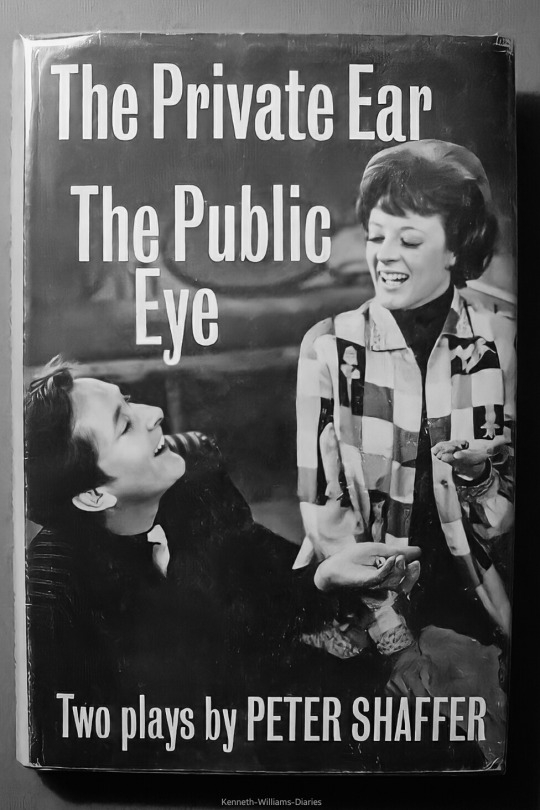
It's the perfect complement to the book ... oh, lucky day!!!! 💕
#I'm still freakin' out ... this is so cool!!!!#Kenneth Williams#Maggie Smith#autographs#Ken & Mags 💕#The Private Ear and The Public Eye#Peter Shaffer#stage play#theatre programme#British theatre#Globe Theatre London#1962#1960s#collectables#my edits
9 notes
·
View notes
Photo
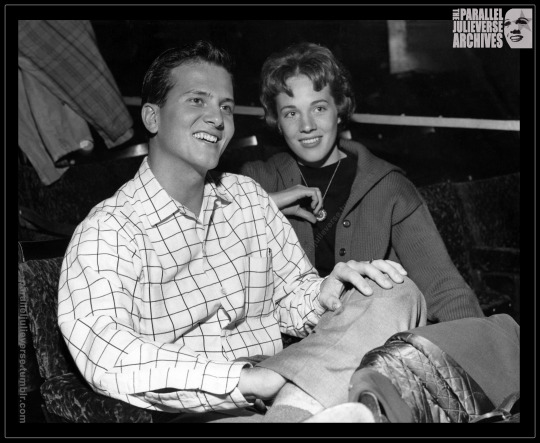
From the Archives: Julie and Pat Boone at the rehearsal for the Royal Command Variety Show at the London Coliseum. 3 November 1958.
As an added bit of trivia, Julie and Pat Boone shared the same dialect coach, Alfred Dixon. Dixon helped Julie master Cockney for My Fair Lady and he worked with Boone on his (not terribly convincing) Scottish accent in Journey to the Centre of the Earth (1959).
#julie andrews#pat boone#royal command variety#london coliseum#british theatre#1958#My Fair Lady#journey to the center of the earth
13 notes
·
View notes